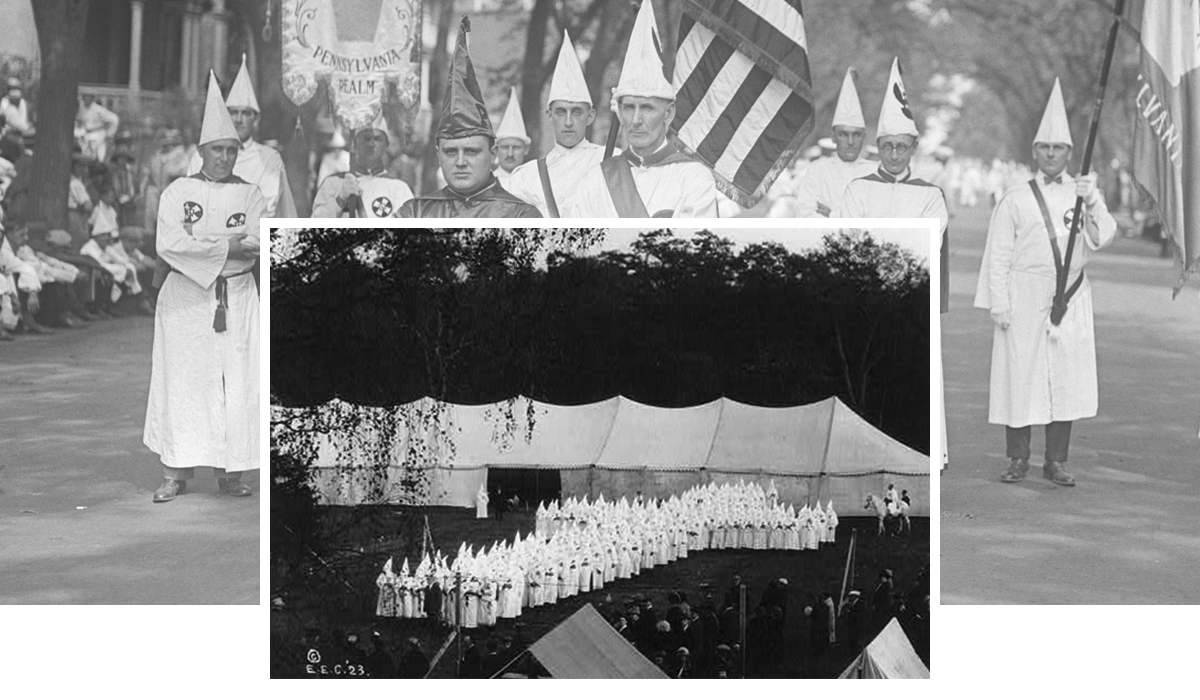- Feb 5, 2002
- 166,616
- 56,251
- Country
- United States
- Faith
- Catholic
- Marital Status
- Married
- Politics
- US-Others
“Loyalty to the white race, to the traditions of America, and to the spirit of Protestantism … has been an essential part of Americanism ever since the days of Roanoke and Plymouth Rock.” Hiram Wesley Evans, the imperial wizard of the Ku Klux Klan, offered this definition of Americanism in the pages of North American Review, the oldest literary magazine in the United States, in 1926. The sentiment can be traced to the founding of the English colonies. To be American was to be white, Anglo Saxon and Protestant.
Many Americans believed Catholics were, at best, incapable of being truly American and, at worst, a threat because their religion was superstitious, suppressed personal liberty and required loyalty to a foreign leader (i.e., the pope) who was hostile to Protestantism at home and abroad. In a country whose founding was shaped by both the intellectual Enlightenment and the religious movement known as First Great Awakening, Catholics could not be true citizens. Many leading figures and movements in the first 125 years of the nation’s history believed and acted on this belief, but the KKK embodied the most virulent and aggressive form of this hatred nationwide.
On Thanksgiving Day 1915, William J. Simmons founded the second iteration of the Ku Klux Klan at Stone Mountain, Georgia. This former preacher turned salesman resurrected the ideals and methodology of the first Klan and combined them with made-up imagery from D.W. Griffith’s recent blockbuster film, “The Birth of a Nation,” which valorized them. When Simmons observed the nationwide tension over the question of immigration, he saw an opportunity for his organization ripe for the taking.
Continued below.

 www.oursundayvisitor.com
www.oursundayvisitor.com
Many Americans believed Catholics were, at best, incapable of being truly American and, at worst, a threat because their religion was superstitious, suppressed personal liberty and required loyalty to a foreign leader (i.e., the pope) who was hostile to Protestantism at home and abroad. In a country whose founding was shaped by both the intellectual Enlightenment and the religious movement known as First Great Awakening, Catholics could not be true citizens. Many leading figures and movements in the first 125 years of the nation’s history believed and acted on this belief, but the KKK embodied the most virulent and aggressive form of this hatred nationwide.
Fighting Catholic immigration
When most of us think of the Klan, we are thinking of it as an organization with a thru-line all the way back to 1865, but the truth is that the first iteration of the KKK was short-lived. Historian David Chalmers explains that it began as group of former Confederate soldiers who amused themselves by pretending to be ghosts with silly titles before evolving into something far more terrible when they realized their antics scared recently freed Blacks. It ultimately became a terrorist group intended to restore white supremacy in the South before being put down by President Ulysses S. Grant’s administration and the military in 1872.On Thanksgiving Day 1915, William J. Simmons founded the second iteration of the Ku Klux Klan at Stone Mountain, Georgia. This former preacher turned salesman resurrected the ideals and methodology of the first Klan and combined them with made-up imagery from D.W. Griffith’s recent blockbuster film, “The Birth of a Nation,” which valorized them. When Simmons observed the nationwide tension over the question of immigration, he saw an opportunity for his organization ripe for the taking.
Continued below.

Catholicism and the revisited history of the Ku Klux Klan
Many Americans believed Catholics were, at best, incapable of being truly American and, at worst, a threat.
 www.oursundayvisitor.com
www.oursundayvisitor.com
